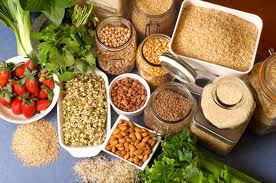Constipation Relief

5 Evidence-Based Constipation Home Remedies by a Registered Dietitian Constipation is a common issue that affects one in five people following a Western diet. If you have ever suffered with this you will know how unpleasant the feeling is. Maybe you are currently suffering with ongoing constipation and are in need of some guidance, so please read on. I’m Gillian Killiner, a registered dietitian with 26 years of experience in helping thousands of individuals with their dietary and health needs. In this blog post, I share five evidence-based tips to assist with constipation. But first, let’s define constipation. What is Constipation? Constipation occurs when you haven’t had a bowel movement for more than three times in a week. You can assess your bowel movements by using a stool chart to evaluate consistency and type. Typically, constipated stools are hard, small lumps, or pebble-like Type 1 and 2. What is a normal bowel movement frequency as defined by the NHS? “It is normal to pass a stool everyday up to every 3 days; stools should be soft and easy to pass. You should not need to strain to pass a stool. Some people pass a stool once a day and some twice these are both normal.” So what factors in a Western diet contribute to constipation? Dietary Factors 1. Hydration for Constipation is Key One of the first and most crucial tips for relieving constipation is to stay adequately hydrated. Many people underestimate the importance of drinking enough fluids. It’s easy to forget to drink when we switch off our thirst receptors. To combat this, keep a drink, such as a glass or bottle of water, with you throughout the day. Aim for 1.5 litres minimum. You can also include herbal teas and coffee, but limit them to no more than four cups a day, and avoid making them overly strong. Excessive caffeine can contribute to dehydration, which worsens constipation. 2. Load Up on Fruits and Vegetables Consuming an ample amount of fruits and vegetables is another essential strategy for relieving constipation. Begin your day with a breakfast rich in vegetables or add fruits to your cereal. Incorporate fruits and vegetables into your meals and snacks as much as possible. Variety and color in your diet are key. These foods provide essential antioxidants, vitamins, minerals, and fibre, all of which promote healthy bowel movements. Don’t forget to consider the fibre content in your diet, which can come from sources like nuts, seeds, beans, pulses, and high-fiber grains. Aim for an average of 30 grams of fiber daily to keep your bowels moving smoothly. 3. Dried Fruits as a Natural Solution Dried fruits like prunes, dates, and raisins can also be valuable additions to your diet when dealing with constipation. They are rich in fiber and natural sugars, which can help stimulate bowel movements. Including these dried fruits in your diet can be a tasty and effective way to alleviate constipation, just keep to small portions. Lifestyle Factors 4. Embrace Exercise for Constipation Exercise plays a vital role in maintaining regular bowel movements. It helps reduce transit time, meaning food moves through your digestive system more quickly. This faster gut transit leads to improved bowel regularity. Additionally, exercise promotes the growth of beneficial gut bacteria, strengthening abdominal muscles, and overall gastrointestinal health. Aim for regular physical activity to reap these benefits. 5. Listen to Your Body Lastly, don’t ignore your body’s signals when it’s time to go to the toilet. Often, the morning after breakfast is the most opportune time to have a bowel movement. However, due to our busy lives and schedules, we sometimes ignore these cues. It’s essential not to hold onto stool if you feel the urge to go. Ignoring these signals can have negative long-term consequences. If you find yourself straining during bowel movements, consider changing your sitting position on the toilet. Squatting, for example, can create a more natural alignment for easier passage of stool. Constipation Conclusion Constipation is a common issue, but it can be effectively managed with evidence-based strategies. These five tips, including staying hydrated, consuming ample fruits and vegetables, incorporating dried fruits, embracing exercise, and listening to your body, can make a significant difference in your digestive health. Remember that there are numerous dietary, lifestyle, and supplement options available to alleviate constipation. The tips mentioned here provide a solid starting point. There are many more additional strategies out there so do get in touch if you are struggling. Often we see patients with alternating constipation and diarrhoea, which is so hard to live with. Not being able to predict how your day will go and fearful of your bowels not working smoothly can really impact on your quality of life. Our GUT Health programme is the best programme which can fix you in 6 weeks or less. Do check out my other blogs and my videos on my YouTube channel covering various aspects of diet and health, so don’t forget to like, subscribe, and share my content. Until next time, take care! If you want to book your programme TODAY we would love to help you. You can book a 121 Dietitian Programme today by clicking on the link below If you have enjoyed this blog we would love you to share this with your family and friends on your social media channels. Do visit our YouTube Channel for more on keeping your health optimal. If you are interested in how I overcame my Thyroid Autoimmune Condition do check out the About section below Before you go please check out our 121 Dietitian Shop created specifically for optimising your health. Gillian x
Hangover cures put to the test

Hangover Cures Put To The Test In a culture where celebrations are often fuelled by alcohol, many of us will be searching for a hangover cure to erase the negative effects of the previous night. Here, at 121 Dietitian, we firmly believe prevention is better than the cure. So we have done some research on hangover cures. With so many so-called hangover cures circulating the web. We’ve looked at the studies on each one in order to determine which one is actually the best. Here are our findings… Coffee and paracetamol for hangover Caffeine is thought to raise energy levels while paracetamol relieves aches and pains. However, researchers at Temple University in Philadelphia have revealed that black coffee can worsen a hangover. While scientists at the University of Washington believe that taking paracetamol as well can be deadly, as caffeine triples the amount of a toxic by-product created when paracetamol is broken down. This toxicity is the same substance responsible for liver damage when alcohol and paracetamol react together. You may be up against your genes on these too! As a nutrigenomics practitioner I see many patients with genetic issues. The CYP1A2 gene codes for the CYP1A2 enzyme, which is responsible for caffeine metabolism in the liver. Paracetamol is degraded via a minor pathway by CYP2E1 to the liver-toxic metabolite NAPQI. This is toxic even at therapeutic doses, causing hepatotoxicity. Milk thistle for hangovers Available as a tablet or in liquid form. This is an abstract from the milk thistle plant. It is believed its properties aid the body in metabolising alcohol more quickly. Some studies have shown that silybin and silymarin, found in the plant, protect the liver from toxins. They also boast the benefits of antioxidant and anti-inflammatory properties. However, most of the studies surrounding this were carried out on alcoholics so there is really no proof of its effect in preventing or curing a hangover. Water for hangover One our favourites by far, and one of the most widely recognised hangover prevent/cure techniques, drinking water with alcohol. One pint before bed is believed to reduce the effects of a hangover by diluting some of the nasty by-products of alcohol. Bacon sandwich for a hangover The hangover choice for many. This tradition dictates that bread soaks up alcohol from the night before, alleviating the effects of a hangover. In fact, a study at Newcastle University’s Centre for Life has indeed confirmed that a bacon sandwich can offer relief. Rather than bread ‘soaking up’ the alcohol, it’s the carbohydrate laden effects which boost blood sugar levels, speeding up the body’s metabolism and the process at which the body gets rid of alcohol. Furthermore, rich in protein and amino acids, bacon reverses the effects of alcohol in depleting brain neurotransmitters. But be careful, and stay hydrated as the saltiness may get you later. Isotonic sports drink for a hangover The theory here is that the products contain tiny, easily digestible particles of carbohydrates which help the body to rehydrate faster than by drinking water. Leeds Metropolitan University have revealed that sports drinks are one of the best remedies for restoring blood sugar levels, and their calories can rehydrate the body up to 40% more effectively than water. But remember to monitor both your alcohol and isotonic sports drink intake as anything in excess is damaging. Exercise for a hangover Probably the last thing a lot of people would turn to in a hungover laden state, sweating off a hangover is thought to be a myth. Findings from a government survey revealed that exercise will simply compound your body’s fluid debt and increase your symptoms further. Hair of the dog Many believe that having a drink the next day will ease the recovery process by diminishing the effects of alcohol withdrawal. However, rather than alleviating symptoms, another drink is just elongating the recovery process, lengthening the point at which you feel better. This is a dangerous option and can damage your liver and organs if habitual. Eggs for a hangover While often eaten as part of a hangover fry, eggs are also consumed raw as they contain a substance called cysteine, which is believed the fight free radical damage to the body. However, if feeling queasy, eggs can be hard to stomach and watch for any bacterial contamination. You may find it easier and more helpful to consume a supplement L-Cysteine. This was a small study so not convinced its a miricle cure! Prickly pear cactus for a hangover Taken before a night out in either tablet or pill form. Prickly pear cactus is believed the reduce the likelihood of a hangover. Research at Tulane University, New Orleans tested 64 healthy medical students and indicated that the extracts reduced three out of nine hangover symptoms – nausea, dry mouth and loss of appetite. Halving the risk of a severe hangover. Again a small study and not one to be jumping up and down about for a true cure. This does however highlight the importance of a rich polyphenol diet. Many fruits are a fantastic sources of antioxidants and fluids. Ensuring you consume these daily will support your body if needing to eliminate excess alcohol. Alka-Seltzer for a hangover One of our least favourites, containing a concoction of aspirin, paracetamol and caffeine. It is believed that Alka-Seltzer before heading to bed will leave you feeling revived and hangover-free in the morning. Research at Leeds Metropolitan University revealed that while they can help a headache and neutralise excess stomach acid, the main benefits are probably from the effect of drinking the water that they are dissolved in. They aren’t recommended for sensitive stomachs. Artichoke extract for a hangover Believed to help the liver process alcohol, there is conflicting findings on the effect of Artichoke extract. The journal Phytomedicine showed that a supplement of 400mg extract of artichoke leaf extract helped stomach problems, and there is anecdotal evidence that it reduces indigestion, an upset stomach and nausea. Experts however at King’s College London